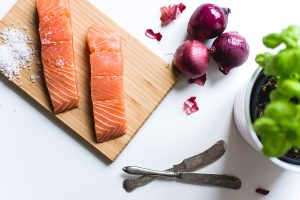The Healthiest Foods to Consume During Pregnancy
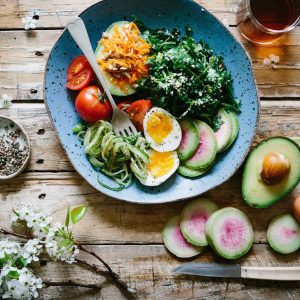
Even if you’re already including an alphabet’s worth of vitamins and minerals into your daily meals, you may fear that you’re falling short of the healthy pregnancy diet mark – especially if your appetite hasn’t yet caught up.
Take a look at these nutritious powerhouses. When choosing the finest meals to consume while pregnant, go for selections that pack a punch of nutrients into a few bites and are low in empty calories. This will ensure that both you and your baby receive the vitamins and minerals you require. (Though the odd cookie or ice cream cone is perfectly OK, so don’t feel guilty about indulging sometimes!)
Nutrient-dense foods are highly helpful when efficiency is a goal, such as when you’re sick, gaining too much weight, or not enough weight.
While all nutrients are essential throughout pregnancy, the greatest meals for pregnancy are abundant in vitamins and minerals that aid in your baby’s growth and development, including:
- Vitamin B6. Getting at least 600 micrograms per day minimises the chance of neural tube abnormalities during pregnancy.
- Iron. Pregnancy requires nearly twice the amount of iron, or 27 milligrammes daily. The mineral is utilised to increase the production of blood, which transports oxygen to your baby.
- Calcium. Maintain a regular intake of 1,000 milligrammes. Calcium is critical for your baby’s development of healthy bones, teeth, muscles, and nerves.
- D-vitamin. It aids calcium in its function and helps maintain a healthy immune system. Daily intake should be 600 IU.
- DHA. DHA is an omega-3 fatty acid that aids in the brain and ocular development of infants. You require between 200 and 300 milligrammes every day.
- Iodine. The mineral aids in the development of your baby’s brain and neurological system. Daily intake should be 290 micrograms.
Keeping track of your nutritional requirements during pregnancy might seem daunting, but choosing the correct meals can help you cover more ground. (Of course, in addition to taking a prenatal vitamin.) Therefore, make an effort to stock up on these pregnant superfoods – and include them into your regular diets.
Meat:
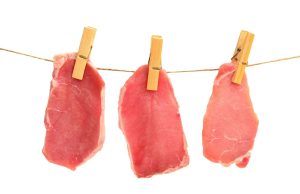
Proteins contain amino acids, which are the building blocks of every cell in your body and that of your kid. Protein-rich meals also help to control hunger by regulating your blood sugar, which is why you should aim for three servings (or around 75 grammes) of protein every day.
As a result, lean beef is one of the healthiest meals to consume during pregnancy. Along with being strong in protein, it’s also high in iron, which is necessary to help your baby establish his red blood cell supply and to sustain your (blood volume rises throughout pregnancy, which is why anaemia is so frequent). Iron is also necessary for the proper development of a baby’s brain.
How to consume it: Lean beef cuts such as round, sirloin, chuck, and loin; lean ground beef; pork tenderloin or loin chop; chicken and turkey; and lamb leg, arm, or loin all meet the description. Because a little goes a long way, use your favourite cut into soups, salads, and rice or noodle meals that are loaded with vegetables. Finally, ensure to completely cook your meat. Internal temperatures between 160 and 165 degrees Fahrenheit are sufficient to destroy pathogenic germs such as E. coli and Salmonella.
Lentils:
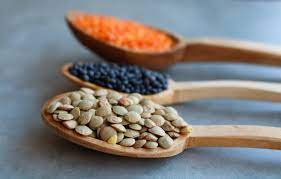
Whether you eat meat or not, this vegetarian source of protein deserves a spot on your menu. A cup of cooked lentils contains around 17 grammes of protein and approximately 7 milligrammes of iron.
Lentils are also high in folate (also known as folic acid in supplements), which is necessary for the development of your baby’s brain and the neurological system and has a strong protective impact against neural tube abnormalities such as spina bifida, a birth disease in which the spine does not form properly. Lentils are also high in fibre, which helps keep your digestive system running smoothly and helps prevent constipation during pregnancy.
How to consume them: To top it off, lentils are quite versatile and can be used in practically any meal. Consider using hard French or black lentils in salads, softer brown lentils in place of chickpeas in your favourite hummus recipe, or creamy, quick-cooking red lentils in a thick, stew-like soup.
Yoghurt:
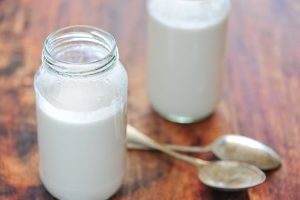
Your baby requires a continuous supply of calcium for growing bones, and you require it to maintain on strength and function of your nerves and muscles. Three to four servings of dairy foods each day will help you achieve your daily calcium requirements, with yoghurt being one of the best choices.
It has the same amount of calcium as milk and is also high in protein and folate. Yoghurt’s active cultures (i.e., beneficial bacteria) can also help reduce stomach distress and yeast infections (which are more common in pregnancy).
However, not all yoghurts are suitable for pregnant women. Plain types are preferable to flavoured kinds since they have no added sugars and make it easier to control your calorie intake.
How to consume it: If desired, add a drizzle of honey or chopped fresh fruit to sweeten. Apart from eating yoghurt straight from the cup or bowl, you can incorporate it into smoothies, layer it with granola to create a creamy-crunchy parfait or substitute it for sour cream or mayonnaise in dips, sauces, or baked goods.
Salmon:
The fatty fish has earned a reputation as one of the healthiest meals to consume while pregnant. Salmon and other cold-water fish are high in DHA omega-3 fatty acids, which are essential for the development of your baby’s eyes and brain since they cannot be synthesised by the body. It helps in the metabolism of fat-soluble vitamins A and E also Salmon is an excellent provider of iodine.
Concerns about mercury, on the other hand? Salmon is an excellent option of fish during pregnancy; feel free to consume 8 to 12 ounces (two to three meals) each week. (Sardines and herring are also excellent options.) When feasible, choose wild salmon over farmed salmon.
How to prepare them: Prepare salmon fillets in the oven and serve over greens or rice. Serve atop a sweet potato and steamed vegetables, or top whole-grain bowls or salads with flaked salmon.
Avocado:
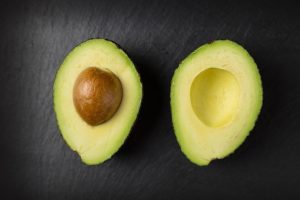
The creamy green fruit is high in folate and vitamin B6, both of which support healthy tissue and brain growth in infants and may help alleviate morning sickness in adults.
It’s also a delicious source of beneficial monounsaturated fats, which aid in the absorption of several vitamins present in fruits and vegetables. Avocado’s high-fat content can help you feel fuller for longer, which means you’re less likely to experience that hangry, need-to-eat-now sensation.
How to consume it: You’re surely aware that avocado is required for guacamole, but that’s not the only use for it. Consider substituting mashed avocado for cheese or mayonnaise in sandwiches, or adding diced avocado to salads.
Edamame
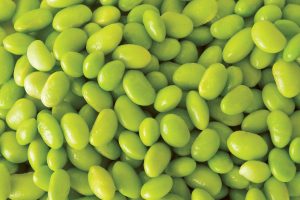
You may already be aware that cooked soybean pods are an excellent amount of vegetarian protein, providing 18 grammes per cup shelled. However, they are also high in other critical pregnancy nutrients. Approximately 100 milligrammes of calcium, 3.5 milligrammes of iron, and 482 micrograms of folate are included in a cup of edamame.
How to prepare them: They’re simple to prepare (frozen pods may be steamed or microwaved in a matter of minutes) and quite flexible. Edamame may be topped with sea salt for a quick, fulfilling snack, pureed with lemon juice and olive oil to create a creamy spread, or added to salads for a quick protein boost.
Nuts:
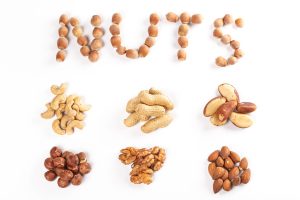
Consider the phrase “little yet mighty.” Nuts provide essential vitamins and minerals such as magnesium, zinc, potassium, and vitamin E, as well as protein, fibre, and healthy fats. Additionally, they are extremely portable, making them a perfect pregnant snack on the go.
Are certain varieties superior to others? Each nut has its distinct nutritional profile — and each may be included in a healthy pregnancy diet. However, some may be very worthwhile. Walnuts are an excellent source of omega-3 fatty acids, while almonds provide a healthy dosage of calcium. And what about peanuts? They are high in folate. (Who would have guessed?)
Even though they contain a lot of fat, it’s largely good fat. Allow yourself a generous piece if you’re gaining slowly, and a modest portion (a handful or so) if you’re gaining rapidly.
How to prepare them: Add nuts to oatmeal or yoghurt for a savoury crunch, or crush them and use them in place of breadcrumbs in chicken or fish meals.
Carrots
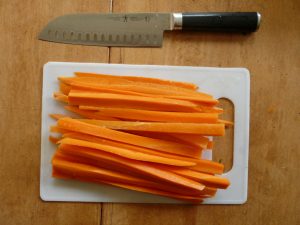
Carrots are vivid orange due to their high beta-carotene content, which the body converts to vitamin A. And that vitamin is crucial for the development of your baby’s eyes, skin, and organs.
How to consume it: Additionally to snacking on the go, consider slicing carrots and incorporating them into a pancake, muffin, or quick bread recipe. Alternatively, steam and mash them with a little butter and cinnamon, exactly like you would sweet potatoes.
Bell peppers- Red

These vegetables are an excellent source of vitamin C and A, as well as fibre, which helps keep things moving. Another significant advantage? Consuming a vegetable-rich diet during pregnancy has been shown to help minimise the risk of problems such as high blood pressure and preeclampsia.
How to consume them: When you’re wanting crispy pretzels or chips, take advantage of their crunchy texture. They’re guaranteed to satisfy whether dipped in hummus, ranch dressing, or simply plain yoghurt as a snack.
Mangoes
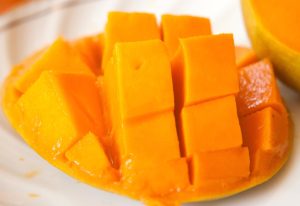
Is your stomach performing cartwheels at the prospect of vegetables? The good news is that mangoes are another excellent source of vitamins A and C.
How to consume them: Make a zesty salsa with fresh mango chopped and serve it over fish or poultry, or combine frozen mango cubes with yoghurt for a sweet-tart smoothie.
Eggs

You’re undoubtedly aware that eggs are a low-cost, easy-to-cook source of protein – a single big egg has 6 grammes. However, it is not all. Eggs are one of the few dietary sources of vitamin D, providing 44 international units (IU) per big egg.
Vitamin D is critical in assisting calcium in developing strong bones and teeth for your kid, as well as maintaining a healthy immune system. Additionally, the data imply that having enough of the vitamin may help minimise the risk of gestational diabetes, preeclampsia, and low birth weight.
How to consume them: If you’re seeking alternatives to the standard scramble, you’re in luck. Pile a poached egg on top of a grain and veggie bowl or salad, or serve sliced hard-boiled eggs sprinkled with everything bagel spice as a snack. Simply ensure that eggs are completely cooked — until they are hard and no longer liquid — to avoid contracting Salmonella.
Kale
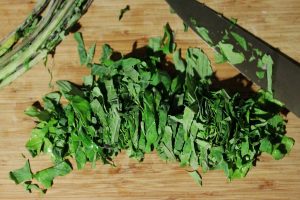
Always an excellent option, the leafy green is an especially strong pregnant superfood. Kale has folate, iron, vitamin C, calcium, vitamin A, vitamin E, vitamin K, and fibre – all in a delicious bundle that can be prepared in an infinite number of ways.
How to consume it: Replace basil with kale in your favourite pesto recipe and mix it with pasta, spread it on a sandwich, or swirl it into scrambled eggs.
Oats
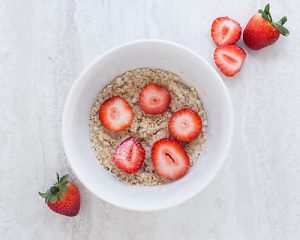
Consuming the necessary 25–30 grammes of fibre per day will help you feel fuller for longer periods and avoid painful pregnant constipation. Additionally, there is some good news: a cup of cooked oats contains more than 4 grammes of fibre.
The additional good news? Additionally, that same cup provides more than 30% of your daily magnesium need, another mineral that is critical for your baby’s bone and tooth development.
How to consume it: Are you opposed to hot oatmeal for breakfast? Try grinding oats into flour in a food processor and substituting it for all-purpose flour in your favourite baked products.
Bananas

They’re a delectable source of energy when the temptation to eat something, anything, strikes. Additionally, they are gentle on the stomach, even if you are feeling nauseated.
Bananas are also high in potassium, a mineral that is critical for maintaining normal blood pressure. They may also assist you in managing bothersome pregnant bloat, as potassium aids in the release of puff-promoting elements like salt through your urine.
How to consume it: If a banana alone isn’t enough of a snack, try layering sliced bananas on top of a piece of peanut butter toast. Alternatively, pulse frozen banana pieces in a food processor to create a delectable dairy-free ice cream that is surprisingly creamy.
Sweet Potatoes:

A single sweet potato has more than 400 percent of your daily vitamin A need. This is especially critical during the first trimester when your baby’s cells are rapidly dividing to form various organs and body parts. (While vitamin A is necessary during pregnancy, avoid supplementation, since excessive amounts of the substance may raise the risk of birth abnormalities.)
How to prepare them: Roast sliced sweet potatoes to make oven fries, or top a halved baked sweet potato with cooked beans, shredded cheese, and chopped avocado to make a meal-in-a-bowl.
Quinoa
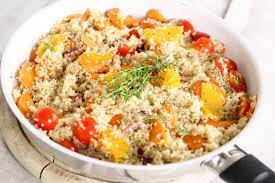
If you didn’t include quinoa in your pre-pregnancy diet, it’s recommended to introduce it now. The entire grain (which is a seed) has 8 grammes of protein, 5 grammes of fibre, approximately 3 grammes of iron, as well as trace levels of calcium, magnesium, potassium, and zinc per cooked cup.
How to consume it: The best part is that quinoa cooks in less than 20 minutes. Combine it with roasted sweet potato cubes and black beans for a delectable burrito filling, or simmer it in milk for a morning porridge reminiscent of oatmeal.
Milk with a low-fat content:
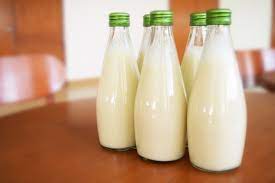
You already know it’s loaded with calcium to help strengthen your baby’s bones and teeth – a single glass provides approximately a third of the daily need. However, milk contains vitamin D, iodine, and a significant amount of protein – around 8 grammes per cup.
How to consume it: If the notion of guzzling a glass of milk does not appeal to you, there are other methods to incorporate it into your pregnant diet. Make a fruit smoothie with milk, or pour fruit and milk smoothies into popsicle moulds to create refreshing, creamy ice pops.
Dry Fruits:
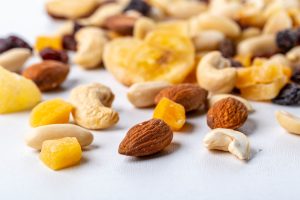
When your blood sugar begins to dip, figs, dates, prunes, and dried apricots provide a concentrated supply of energy. And when your sweet desire strikes, the natural candy-like flavour is a better alternative than genuine candy.
Perhaps even better? Dried fruit is a very nutritious source of fibre, iron, calcium, and potassium, as well as antioxidants. Simply keep in mind that a little goes a long way – dried fruit has more calories than fresh fruit, so watch your quantities and look for sugar-free types.
How to consume it: For a filling snack, combine a handful of dried fruit with a handful of almonds, or swirl chopped dry fruit into yoghurt. Alternatively, serve it as a nutritious dessert: Consider filling dates with peanut or almond butter or drenching dried apricots in melted dark chocolate.
Water

To be sure, it is not strictly food. However, water is critical for a good pregnant diet, so aim to consume eight to ten 8-ounce glasses each day.
Why is water so critical? It is critical in supplying nutrients to your kid and assisting her body in producing new cells. Maintaining proper hydration is critical for you as well. Consuming sufficient water is one of the most effective strategies to avoid constipation during pregnancy. Additionally, dehydration may raise the chance of preterm labour.
All of these significant benefits indicate that you should drink periodically, so fill a water bottle and bring it with you everywhere you go. Take modest sips throughout the day if guzzling leaves you feeling uncomfortably full.
Avoid these foods during pregnancy!!!
While we’re on the subject of the greatest things to consume while pregnant, keep in mind that certain products should be avoided. Certain foods are more likely to contain germs or chemicals that might cause illness, and you should avoid them until after delivery.
For the time being, you’ll have to avoid:
- Juice that has not been pasteurised
- Cheese that has not been pasteurised
- Seafood that is raw
- Meat that is extremely rarely cooked
- Bratwurst and deli meats
- Eggs in their natural state
- Swordfish, king mackerel, orange roughy, bigeye tuna, and tilefish from the Gulf of Mexico are all high-mercury fish.
- Sprouts, raw
- Alcohol
It’s natural to be concerned that your pregnancy diet isn’t exactly right. However, adhering to nutritious meals — particularly those high in folate, protein, iron, calcium, vitamin D, DHA, and iodine — and avoiding empty-calorie snacks helps ensure that you and your baby receive the nutrition you require.
Additionally, if you are worried at any point throughout your pregnancy that you are not getting enough of particular vitamins or minerals, speak with your practitioner. You may work together to assess where you may be falling short and how to close the gaps.
